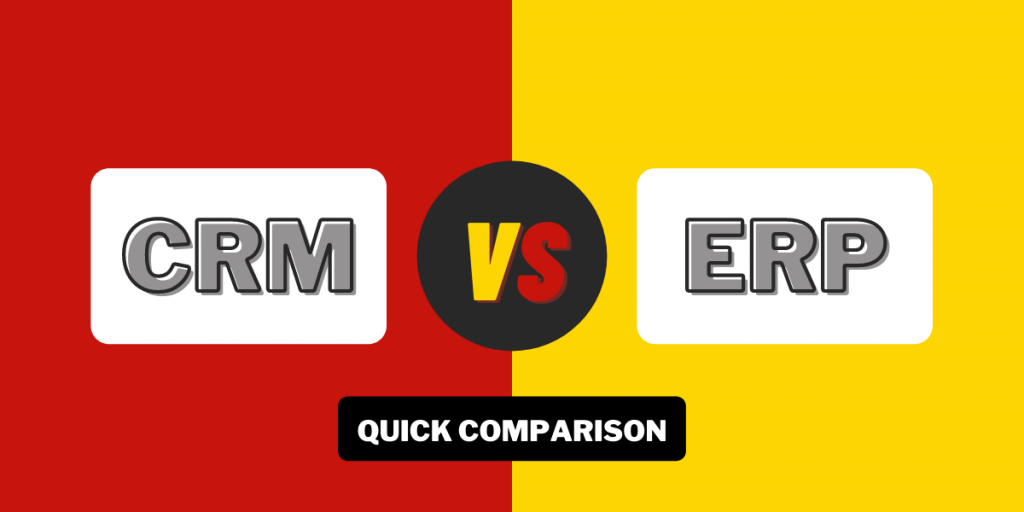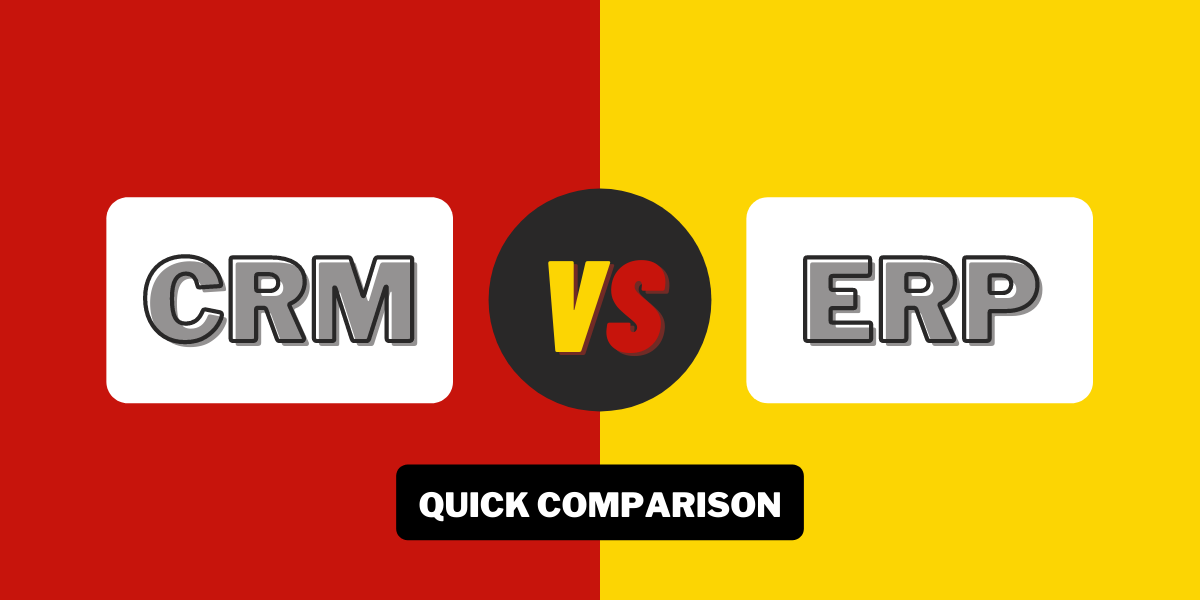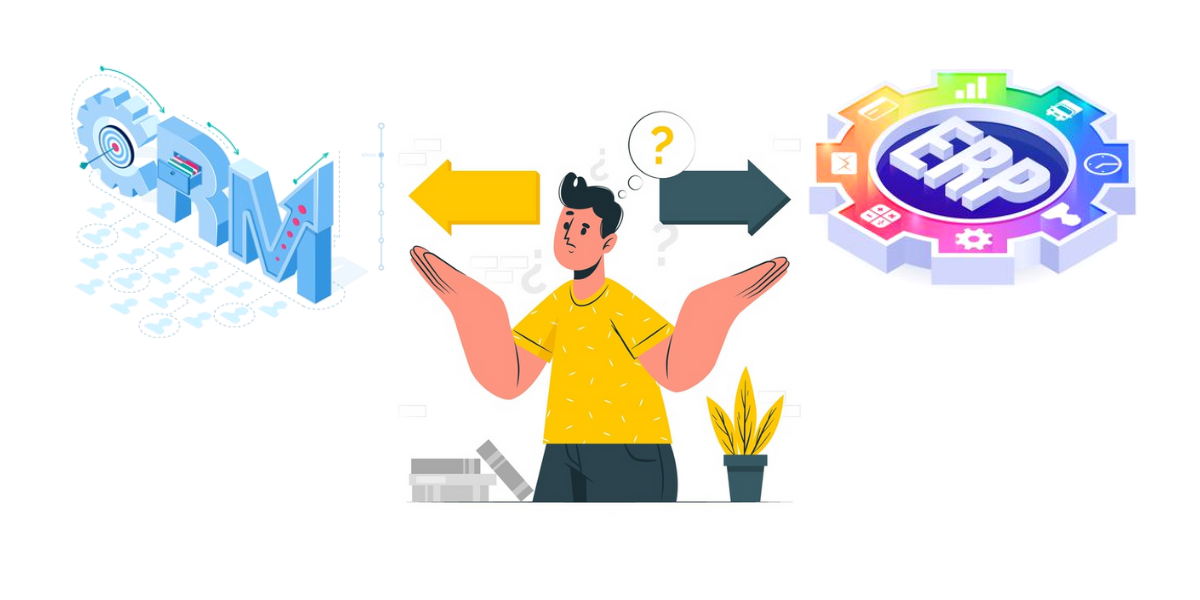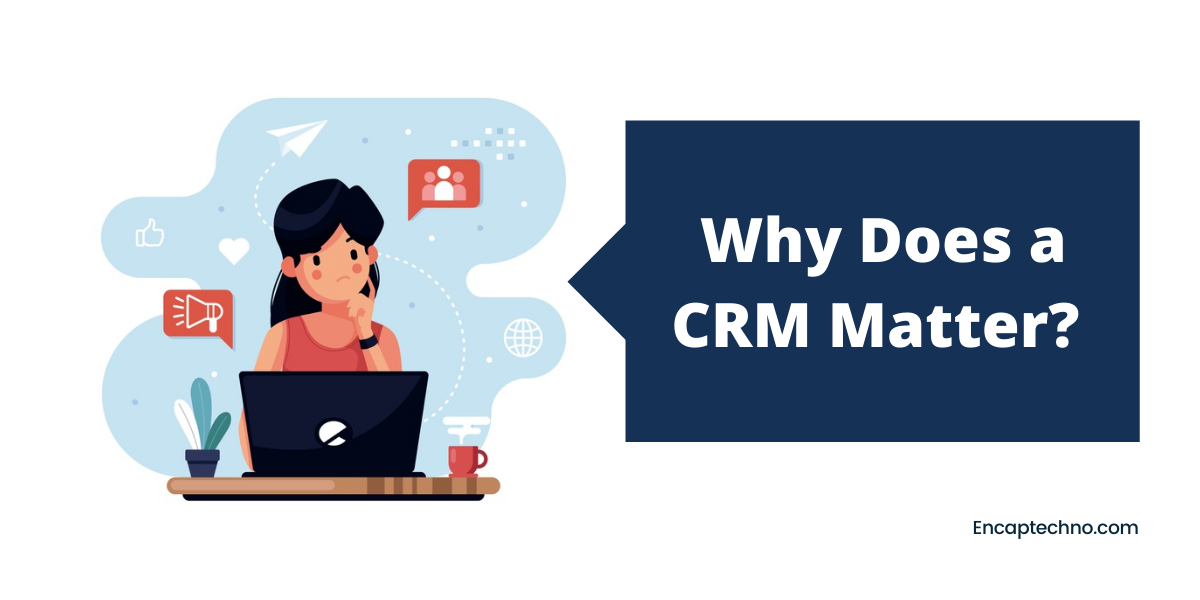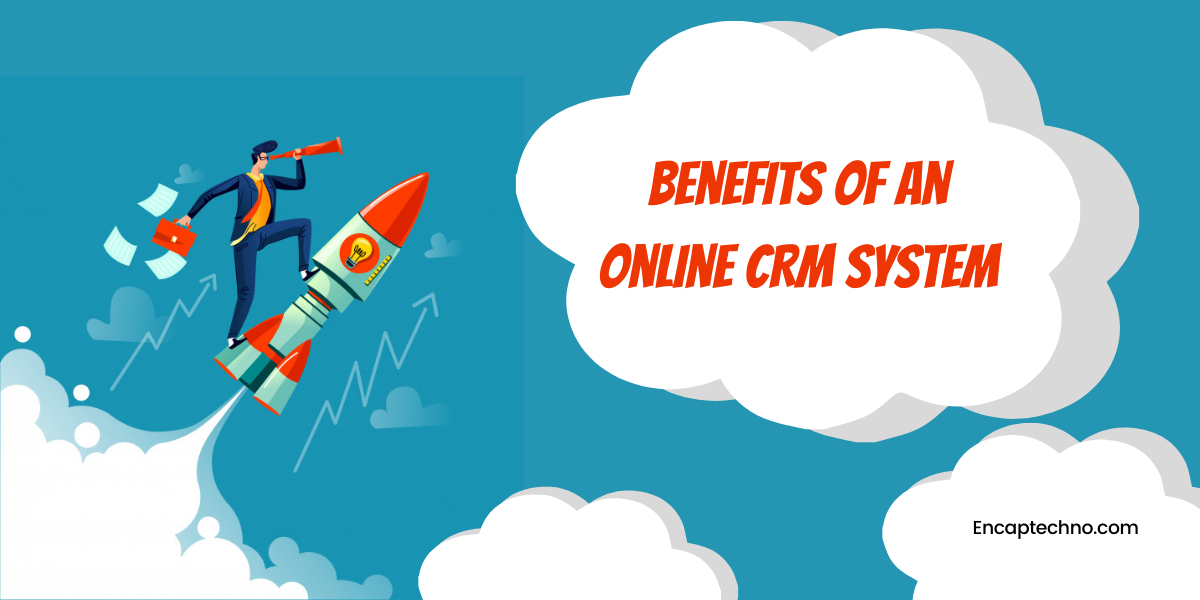CRM vs ERP – A Quick Comparison
Businesses all across the world wish to automate their processes with usually two kinds of software solutions, either a customer relationship management solution, or an enterprise resource planning solution.
Where the ERP system implementation helps companies run successful businesses by connecting operational and financial systems with a central database, CRM helps manage how customers interact with businesses.
Both of these software applications serve the purpose of working as significant data repositories while functioning to improve revenue generation, automation, and overall productivity. They solve the loopholes affecting the functioning of several departments and are often purchased distinctly.
Now, while purchasing these software solutions, many organizations might wonder about the difference between CRM and ERP. Even though both of these are similar to each other in several ways, their fundamental functionalities differ from one another.
In this blog, we will be shedding some light on the topic of CRM vs. ERP with the main aim of doing a quick comparison of these two software solutions.
What is CRM?
A CRM or a customer relationship management software solution is designed to capture all the details about the transactions that go on in an organization with the customers. The primary objective of implementing a CRM is that it helps in building trust and also focuses on maintaining a healthy and long-term association with the clients. An online CRM system can actually be used in various ways so that it enhances the satisfaction levels of a customer.
A CRM can include important information such as:
- Customer’s name
- Phone number of a customer
- Address
- Email address
- History of interaction
- Technical support details
- Purchase details
All this information is mostly included in just one database and is handed over to the employees so that it can be used for the company’s benefit. By using a CRM software solution efficiently, it is also possible to contact potential customers on the basis of their needs and preferences. This helps in expanding the brand’s reach immensely. A CRM software might also include benefits such as employee training, advertising, relationship management that are developed considering a client’s requirements.
In simple terms, an online CRM system is excellent for providing a standardized method for collecting and sharing important customer data and cataloging customer interactions. Since the data in a CRM system is standardized, it is very easy to share it all through the company.
When used efficiently, CRM can be used for creating sales projections, contacting customers, shipping to verified addresses, and creating invoices. The goal of CRM is to offer a comprehensive store of customer data that is used for improving sales, expanding customer retention rates, and making much better customer relations.
What is ERP?
On the other hand, an ERP or an enterprise resource planning software solution contains functionality for a wide range of business processes including inventory management, finance, marketing, etc. With an ERP system implementation, it is possible to integrate important processes, streamline them and then centralize all information.
An ERP software has tools that are related to both the front and back-office information. It helps in advancing internal communication and data exchange as well. Other than this, it also offers automation which makes connectivity easy in multiple workflows.
Just like a CRM, an ERP is also made to optimize business operations. Where a CRM is mostly focused on the sales aspect of an organization, an ERP system can be implemented in various departments.
In essence, an ERP system provides interconnected management of important business processes just so that all departments can get the information they need in real-time. In case there is a problem that alerts are sent to the recipients right away. With an ERP system implementation, businesses can remain focused on data and make fewer errors while making much better decisions.
Some of the core features of an ERP system include processing business information, getting important alerts, managing hiring initiatives, managing benefits, payroll, and employee information, creating enterprise-wide strategies, updating accounts, etc.
Difference In CRM and ERP
When we talk about the differences between CRM and ERP, it is important to understand their meanings relative to each other for better knowledge. ERP facilitates business processes across a wide range of workflows which means that in case you are looking to invest in systems that benefit finances, operations, and warehouses, an ERP may be great.
However, an CRM system is more for a customized solution, Several ERP solutions include important functionality, but the total number of custom-related features included in a CRM is more extensive than what may be featured in an ERP package.
The final difference between a CRM and an ERP lies in the scope of work that they are capable of. While comparing the two software solutions, it is always best to look at a company’s needs so that the functionality needed from a solution can be determined specifically.
We will see the primary functions of both CRM and ERP to gain an even better insight into what these software solutions are capable of when it comes to their functionality.
Primary Functions of CRM
1. Storing Information
An online CRM system helps in collecting and storing information about the target customers from the market. The information that is collected is stored in an organization’s database in a centralized way.
This is important data that can be quickly accessed at any time and from any place. The information so collected is used by businesses to understand customer behavior in true essence. This helps in offering better satisfaction to customers.
2. Marketing Programs
A CRM is concerned with personalizing the marketing programs of a business. It helps in designing the marketing strategies according to the needs of different customers while making attempts to attract more and more customers.
The sales professionals are trained properly according to the information acquired with the help of a CRM and opportunities that can attract more customers are then included in marketing strategies.
3. Sales Operations
With the help of customer relationship management, one can increase the sales and revenue generation of an organization. It also helps in increasing the business with present customers and new customers. An online CRM system is focused on processes such as cross-selling and up-selling which help in increasing sales.
After the customers are happy and satisfied with a business, the up-selling and cross-selling techniques turn out effective in the process of business expansion. The customers can start believing in some brands and try their products as well.
4. Customer Relationship
Managing customers is another important task that a CRM performs. It segregates the customers into diverse groups according to the behavior, preferences, and interests. This segmentation helps an organization in understanding customer behavior while also offering much better services.
The customers are treated differently according to the groups that they are put in. This helps in improving the customer relationships and eventually, the marketing and sales endeavor of a company as well.
5. Cost Control
Efficient management of costs is often looked at as one of the greatest challenges while running a business. When this is done successfully, getting better-quality products at a lesser cost becomes way easier.
With the implementation of a customer relationship management system, a majority of expenses can be reduced because there is minimal paperwork involved. The data becomes digitally centralized and also brings the overall cost while increasing the profit margin.
Primary Functions of ERP
1. Business Intelligence
With a business intelligence module, business leaders can make important decisions that are based on meaningful data. ERP system implementation helps in benefitting from business intelligence that enables practical business process analysis and offering reports without any excess information.
These reports can be in a visual format or presented in the form of tables as well. This depends on the preferences of a business manager completely.
2. Customer Relationship Management
With an ERP system implementation, organizations can also get a CRM module that stores important data related to customers. This function of an ERP system helps the employees to get insights that can improve sales and marketing processes.
For example, a CRM can track customers with their buying habits seeing which products might be useful to sell and when is an appropriate time to offer the products. A CRM system is very helpful in the functioning of an e-commerce business because it allows targeting prospects with meaningful ads.
In addition, a CRM module can also help in tracking when the prospects have been contacted and what was discussed while getting rid of additional phone calls that might not be appropriate.
3. Supply Chain Management
The supply chain management offered by an ERP system helps many organizations to enhance the efficiency of a supply chain and use real-time data that optimizes distribution and manufacturing processes. With this function, it becomes possible to solve a logistics problem immediately as opposed to waiting for the next day.
Furthermore, supply chain management also helps in tracking and analyzing processes that help in predicting when a problem is likely to occur. The customers get notified when orders are being processed and shipped in real-time.
4. Financial Management
All businesses that have an ERP system implementation use the financial management function to their benefit. This function works along with the other ERP components for tracking the flow of money in a business.
From the purchase of new things to paying the employees and then sending invoices, everything can be managed. It also helps in budgeting, creating financial forecasts, and offering insights that can help in reducing costs.
5. Inventory System
An ERP software solution also helps in the inventory management system. Owing to this, order fulfillment and warehouse inventory tracking helps in tracking inventory manually.
This system is very useful to the manufacturers or companies that have their own distribution centers in which tracking inventory can become a complex affair. The features can include real-time inventory on the company’s website for informing the customers about what is there and what is not there in the current stock.
CRM or ERP, What to Choose?
If a business needs CRM or ERP or both depends completely on the size and complexity of a business. For small to medium-sized businesses, a CRM manages customer data stores on hand-written notes, emails, etc. Customer relations are fundamental in any business and CRM ensures that they go smoothly.
On the other hand, an ERP is an extremely useful tool that can help in streamlining business processes. It helps in managing different departments within a business by providing real-time information. As any business grows, the need for an ERP becomes clear because, with its implementation, anyone in an organization can know what is going on in a department.
Conclusion
In case, you are trying to choose between a CRM, or an ERP then it all depends on the size and setup of a business along with many other factors. They are both great tools for increasing revenue but the actual functions they offer differ from each other.
Take your time and decide which program is best for your business depending on the scope of your needs and the amount of investment you want to make.
CRM vs ERP – A Quick Comparison Read More »
CRM Services
